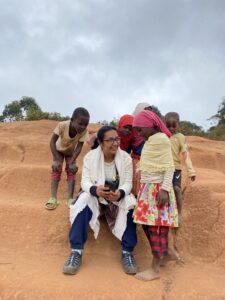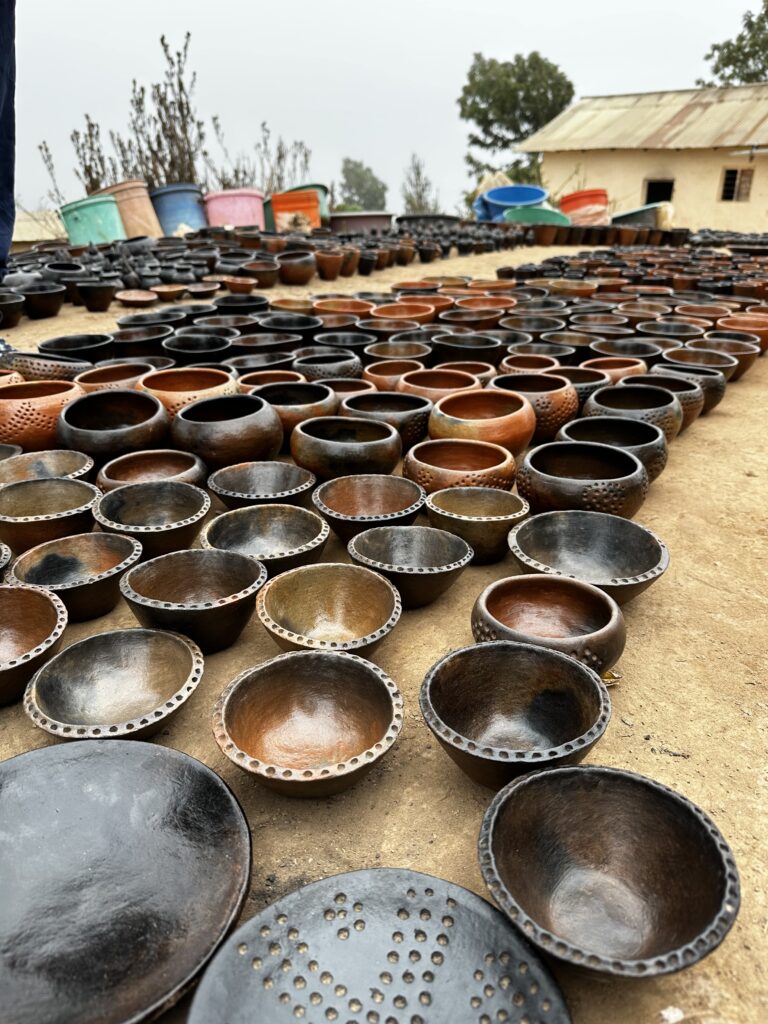The Usambara Mountains in northern Tanzania are often seen as a hidden paradise for hikers—lush trails weaving through cloud forests, sweeping views of rolling green hills, and fresh air that carries stories of centuries past. But what if you don’t hike? Is it still worth the trip?
The answer is a resounding: yes.
In fact, the Usambaras offer a richness of experience that goes far beyond trekking boots and trail maps. For the curious traveler, the region promises a cultural, creative, and deeply human adventure—especially if you’re willing to step off the beaten path and explore life as it’s truly lived here.
A place where people matter the most
At the heart of the Usambara experience are its people. Villages like Mambo, Mtae, and Lushoto are home to warm, generous communities with vibrant traditions. Here, life moves a little slower, and interactions are more meaningful. It’s not uncommon to be invited into someone’s home for a cup of chai or to join a spontaneous drumming session in the afternoon sun.
Visitors who don’t hike often find themselves immersed in these rich exchanges—learning Kiswahili phrases, trying out local foods, helping in community gardens, or sitting in on storytelling sessions led by village elders. You may arrive as a guest, but you’re likely to leave as a friend.
Cultural experiences you won’t forget
For travelers who appreciate culture and craft, the Usambaras offer one-of-a-kind experiences that are as enriching as any mountain hike.
One favorite is “Cooking with Mama”—a cooking lesson and meal hosted in a traditional Sambaa home by Mama Bisura, one of Uvi House’s beloved cooks. In her warm, wood-smoked kitchen, visitors are invited to roll up their sleeves and prepare a feast together—banana stew, coconut rice, or sambaa vegetables simmered over a charcoal stove. This is not a curated tourist show—it’s real-life Tanzanian hospitality, full of singing, laughter, and stories shared between pots and pans.
Another local treasure is the ancestral pottery workshop, tucked in a quiet corner of the village. Here, generations of Sambaa women craft pots, dishes, animal figures, and ornaments entirely by hand, without the use of a potter’s wheel. Their only tools? Mango pits, sharpened sticks, and the knowledge passed down from their grandmothers. Visitors are welcome to watch the process—or try shaping clay themselves. The atmosphere is humble and mesmerizing: the clay turns, the fire crackles, and you witness pure ancestral knowledge at work.
Art, music and community projects
Usambara isn’t just about nature—it’s also a place of creative and educational innovation. Through initiatives like Uvi Foundation for Education, the mountains have become a hub for community-led projects in music, visual arts, and youth empowerment.
Spend a day at the Uvi meeting point, and you might stumble upon a student-led band rehearsal, a video shoot for an original music piece, or a tutoring session that blends English learning with dance and storytelling. Teens direct their own videos, write articles for international magazines, and explore how creativity can lead to change. As a visitor, you’re welcome to observe, share ideas, or join in—no hiking gear required.
Unforgettable views without a trek
Let’s be honest: the views in the Usambara Mountains are breathtaking. But not every panorama requires a multi-hour hike.
From the clifftop guesthouses in Mambo or Mtae, you can watch the sun rise over the Maasai plains and set into the valleys of western Tanzania—all from the comfort of your porch. The cool highland breeze, the call of hornbills, and the shifting play of light offer peace and inspiration that ask only your attention, not your endurance.
Even a scenic drive will take you through forests, waterfalls, colonial-era architecture, and wide fields of sunflowers and maize. A short walk through the village is often enough to fill your camera roll—and your heart.
Tanzanian hospitality at its finest
One of the most powerful aspects of traveling in Usambara is its authenticity. The region is far from mass tourism. Whether staying in an eco-lodge or a modest village guesthouse, you’re more than a visitor—you’re part of a living story.
And for those who wish to give back, many opportunities await: sharing a skill, joining a classroom activity, or simply listening to students’ dreams. Every kind word or helpful gesture becomes part of a greater impact.
A Deeper Journey
So, no—you don’t need to hike to experience the magic of the Usambara Mountains. In fact, not hiking might allow for a more personal, cultural, and meaningful journey.
Here, it’s not about conquering peaks. It’s about connection, curiosity, and community. About cooking over a charcoal stove with Mama Bisura, shaping clay with bare hands in a dusty pottery yard, or learning a new song from a group of kids who believe in a better future.
So if you’re wondering whether it’s worth the trip, even without hiking: the answer is simple.
Come. Come slow, stay long, listen deeply—and let the Usambaras speak to you.
If you want to learn more about our tailored tours in Tanzania




